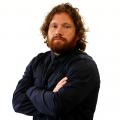
A group of General Surgical Consultants who sit on the review of General Surgery Network have responded to the suspension of emergency surgery at the South West Acute Hospital (SWAH).
The announcement was made last Thursday by the Western Trust due to an “unplanned change of service” at the hospital.
Nine consultant surgeons signed the statement, including Mark A Taylor, who was part of the Western Trust and Department of Health representation who presented to the Council last Thursday evening.
The others were Anand Gidwani, Andrew Kennedy, Ian McAllister, Barry McAree, Michael Mullan, Gary Spence, Colin Weir and Susan Yoong.
“The difficulties seen in the South West Acute Hospital general surgical services have been escalating for a number of years and the failure to grasp the opportunities within the Bengoa Report have resulted, as predicted, in the loss of consultant general surgeons and unplanned collapse of the service,” the statement said.
The surgeons accept that changes within hospital services are never easy and it is “understandable that such decisions bring anxiety, anger and pessimism” and this latest decision is no exception.
The statement says this change was recommended in the general surgery review but it has come about via a service collapse due to lack of staff.
“It’s an unavoidable fact that smaller hospitals are finding it increasingly difficult to recruit and retain consultant general surgeons. That’s a reality right across these islands.
“In fact, many parts of the UK changed the delivery of general surgery well over a decade ago, with emergency general surgery being centralised in bigger hospitals, whilst elective activity took place in the smaller hospitals. One of the principal reasons was a failure to recruit general surgeons to the smaller rural hospitals.
“It’s no reflection on the hospitals or the local areas. It’s down to the way modern medicine and in particular general surgery has developed.”
They added: “Emergency general surgery requires 24/7 consultant cover. When you have smaller teams, rotas are more punishing as they are shared out among fewer colleagues.
“Staff teams can be easily destabilised by routine occurrences like a colleague falling ill or moving to a job elsewhere.
“The service invariably ends up being reliant on temporary locum doctors to plug gaps that cannot be filled permanently.
“In short, the service becomes less resilient, more fragile and less attractive as a workplace.”
And this is what they say has happened in the SWAH, and as for the inability to attract and retain consultant surgeons: “Much of it is down to numbers – the limited number of patients coming through the doors, the relatively small size of its catchment area, the small number of emergency operative procedures, the consultant’s feeling of isolation with limited interventional radiology, gastroenterology and other members of the full multidisciplinary team.”
The surgeons say it is easy to accuse the Trusts of not doing enough, or to try harder, but this “will not alter the basic realities of population size and modern emergency surgical practice”.
“We fully understand the support in the local community for their local hospital; and the desire to have services close at hand.
“In an ideal world, everyone would live near to a major hospital that can provide every single medical specialty. That’s not the world we are living in.”
The surgeons point out that heart and stroke patients needing emergency care already bypass the SWAH for specialist treatment.
“Although emergency general surgery needs to be done relatively quickly, we are not talking about the race against time seen in other types of medical emergencies.
“The people of Fermanagh are not being asked to decide where to attend if they fall sick. They should attend the SWAH’s ED as they would normally have done.”
With the announcement also last Thursday that the Department of Health has chosen the SWAH as their third overnight stay elective surgical centre, the surgeons believe this will help to address the massive waiting lists in Northern Ireland and “ensure a greater surgical presence on the SWAH site than ever before”.
The surgeons’ response continued: “The need for transformation of our health service has never been greater and sadly we will hear of more examples of unplanned service change, going forward, unless we make the difficult decisions in a planned, co-produced manner, with the ultimate goal that no matter where you live in Northern Ireland, you will receive the same, high-quality care, whether it be elective or emergency surgery. There is an onus on politicians, clinicians, civil servants to come together to drive the necessary changes forward; otherwise, we will continue to see services fail,” the surgeons said.



Comments: Our rules
We want our comments to be a lively and valuable part of our community - a place where readers can debate and engage with the most important local issues. The ability to comment on our stories is a privilege, not a right, however, and that privilege may be withdrawn if it is abused or misused.
Please report any comments that break our rules.
Read the rules here